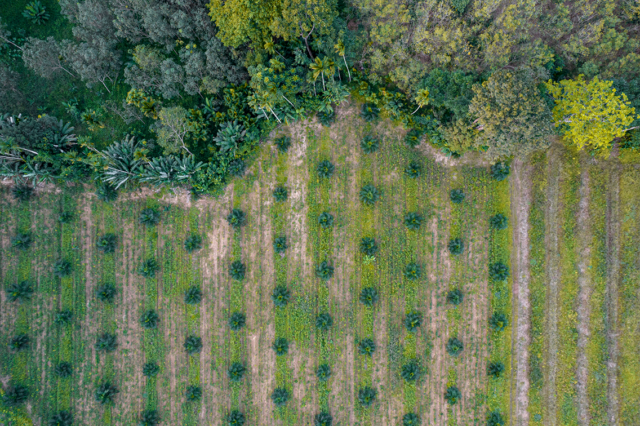The Amsterdam Declarations Partnership (ADP) is a multilateral effort by ten European countries to eliminate deforestation related to agricultural commodity production by 2025. This Trase report is intended to help Germany in its efforts to meet the ADP commitments and prepare for new EU legislation which aims to regulate deforestation-free products.
Key findings
- From 2016-2018, 94% of Germany’s directly imported deforestation risk was linked to just five key commodities: soy, coffee, palm oil, cocoa and cattle. More than 90% of this comes from nine countries, including Brazil Colombia, and Indonesia.
- Deforestation risk in Germany’s supply chains has varied over time, but has recently begun to emerge in particular hotspots, such as Colombia.
- Deforestation risk can be concentrated in particular areas within hotspots: more than half of Brazilian soy deforestation risk comes from just three municipalities in the Matopiba region.
- As Germany is an important hub for trade and processing, adjusting for re-exports lowered deforestation risk exposure by around 20% overall, but this impact varied between commodities. For instance, making this adjustment halved the deforestation risk from cocoa and coffee.
- Germany’s deforestation risk is larger than for France and Italy.




